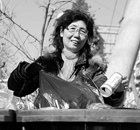Society
Most female healthcare workers stressed: Poll
By Shan Juan (China Daily)
Updated: 2010-05-06 06:50
 |
Large Medium Small |
Beijing - Most Chinese female healthcare workers are suffering from heavy workload and stress, a recent survey by the China Medical Women's Association has found.
The survey, which polled 2,600 women aged between 20 and 70 in 70 medical institutions nationwide, was aimed at providing a general picture of female healthcare workers' job, emotional and living conditions, said Yu Dong, secretary-general of the association.
"Female healthcare workers, who account for nearly half of all licensed medical workers in China, are facing relatively more pressure than their male counterparts as they tend to shoulder more domestic responsibilities," Yu said.
Nearly 72 percent of those polled said they were usually exhausted at work, in which they spent an average of 10 hours a day.
More than 76 percent of the respondents also said they were often upset because of the huge pressure at work.
Competition with colleagues, pressure to catch up with medical advances and high expectations from patients were also behind the mounting stress the workers felt on the job, the poll showed.
"I have to see at least 20 patients a day. I'm exhausted when I get back home but I still have to take care of my child and work on my thesis to be promoted," said Wen Hongyan, 36, a doctor at the First Affiliated Hospital of Nanhua University in Hunan province.
Wen said plagiarism has been rampant among clinical doctors writing their papers because they are "mired in daily work and have no time for their medical research, which is necessary for promotion".
As for personal life, two-thirds of those polled said they felt sorry for not having enough time for their parents and children.
"Huge and long-term pressure from work and family commitments pose serious health hazards, mentally and physically, for female medical workers," Yu said, urging for more attention and understanding from society for the workers.
Previous rounds of medical reform in the country that were market-oriented saw complaints from patients that centered on rising medical costs and poor services.
Relations between doctors and patients also became strained, with cases of patients suing or even attacking doctors making the headlines.
Many medical workers began to feel the pressure. A survey on healthcare professionals last year reportedly showed that fewer than 20 percent of medical doctors polled would encourage their children to follow in their footsteps.







